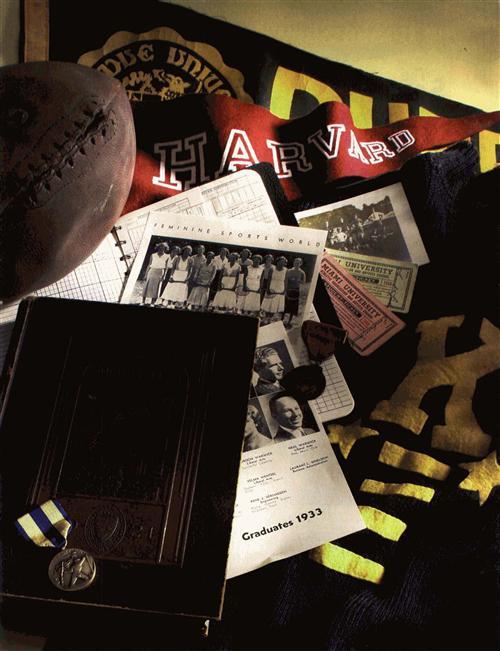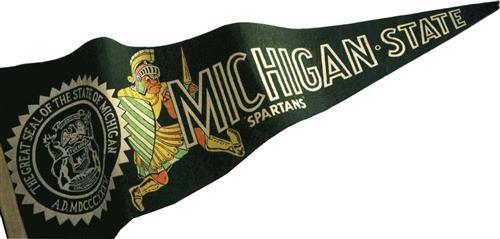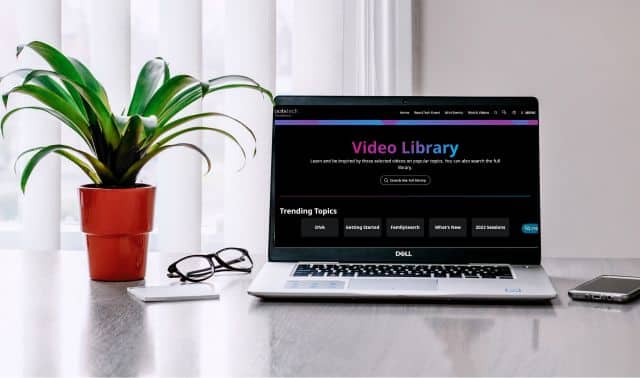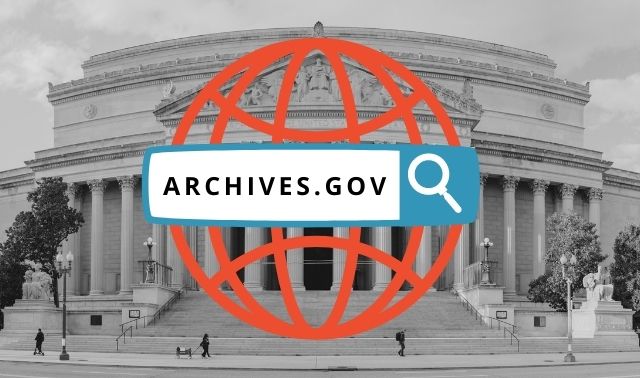
You might not get results that immediate in a beginning genealogy class, but you will get the skills you need to create your own genealogical luck. Basic family history classes are widely available and range from hourlong crash courses to multisession programs complete with homework. Sign up for one, and you’ll learn about pedigree charts and family group sheets, commonly used resources and ways to find them, source citation, genealogy software, organization and interviewing relatives. You can form a support system of fellow ancestor hunters, and you’ll definitely gain confidence in your research skills. Before yon know it, you’ll be hoisting yourself over those brick walls. Here’s where to get educated.
The society scene
Genealogical and historical societies are eager to introduce newbies to their members’ favorite hobby through seminars, daylong workshops and traditional classes. Lorna Hanlan of Klamath Falls, Ore., got started in the Klamath Basin Genealogical Society’s free bimonthly classes. The Genealogical Society of Bergen County, Nj’s <www.rootsweb.com/-njgsbc> $40, four-week introductory class includes a one-year society membership. The New England Historic Genealogical Society <www.newenglandancestors.org> in Boston has a free, hourlong Getting Started on Your Family History program the first Wednesday of each month.
The big plus here is that you’ll probably learn from a local expert who can warn you about research idiosyncrasies in your area — such as that pesky records gap created by the 1912 county courthouse fire — and tell you how to get around them. You’ll also get to meet society members and see if you’d like to join. Even if your ancestors lived elsewhere, you’ll still benefit from these programs. Christine Edmond, now of Waldorf, Md., once took a class from the Milwaukee County Genealogical Society even though her family hadn’t settled there. “Turns out Milwaukee’s downtown library was a depository, and not just for Wisconsin information, I wouldn’t have known this otherwise,” Edmond says.
Contact your local society, or find its Web site by logging onto your county’s USCenWeb page (go to <www.usgenweb.org> and click on The Project’s State Pages, then on your state). You also might look in your newspaper’s community-events section and check for fliers in the public library’s genealogy department. Visit the National Genealogical Society’s Web site <www.ngsgenealogy.org> and subscribe to its biweekly e-mail newsletter, Upfront with NCS, to get workshop notices delivered right to your inbox.
Public domain
Jump at the chance to enroll in your public library’s genealogy classes. Not only are they usually bargain-priced, but they’re great for learning your way around the library’s resources and getting acquainted with a valuable research ally — the librarian. Among the education offerings at the Cincinnati public library is an annual spring Family History Fair, which includes a free beginner class. Staff members also give tours of the genealogy department regularly and by request.
Check your library’s online events schedule (see <www.libdex.com> for a searchable directory of library Web sites) or stop by its information desk. Pay attention to history-related commemorations, such as February’s Black History Month and October’s Family History Month — libraries often plan classes around such events.
A nearby Family History Center (FHC) — a branch of the Church of Jesus Christ of Latter-day Saints’ Family History Library in Salt Lake City — may host classes, depending on the FHC’s size and staff. The Los Angeles Family History Center <www.lafhc.org>, for example, offers classes on beginning genealogy and ethnic research. To search for an FHC near you, go to <www.familysearch.org>, click on the Library tab, then Family History Centers. Web addresses aren’t included in the listings (not all FHCs have Web sites), so you’ll have to use a search engine such as Google <www.google.com> to find one. Search on “Family History Center” (include the quotation marks) and your town’s name.
Back to school
When he got curious about his ancestors eight years ago, Larry Allen of Marion, lowa, enrolled in a basic genealogy class at Kirk-wood Community College. “It was set up in a computer classroom, so we each had access to the Internet,” Allen says. “The contact with the other members of the class working on their problems, as well as the hands-on experience, got me off to a solid start.”
In response to genealogy’s popularity surge, community colleges and universities are offering noncredit family history classes like the one Allen took. These classes generally cost a bit more than the ones at libraries — and you may have to find parking on a crowded campus — but the length and structure allow for more in-depth instruction. For example, at Arizona’s Mesa Community College, you’d pay $74 to take Introduction to Genealogy on the Internet — but you’d get seven two-hour sessions. Some colleges even offer online education. The University of Cincinnati’s Communiversity system, for example, hosts a six-week Genealogy Basics course; it provides two lessons per week for $69. (See the next page for more on online classes.)
Call the community-education departments of colleges near you, or check their Web sites for course schedules (genealogy classes may be listed under a variety of headings, from Personal Enrichment to Local History), Search by location for college and university Web sites at <education.yahoo.com/college/essentials/school_search>. Printed schedules may be available at your library’s information desk, as well.
Roots community
Does your local government, church or school district run a community center? If so, it may provide family history classes — and they’re probably inexpensive or free, The technology-wary should look for computer classes, too.
Many community groups have special programs for senior citizens. In Beaverton, Ore., for example, the Tualatin Hills Park and Recreation District’s <www.thprd.org> Elsie Stuhr Senior Center has a four-week course called Genealogy: Who Are My Ancestors? for $21 (out-of-district residents pay $31.50), More than 200 colleges and universities belong to the Elderhostel Institute Network (EIN) <www.elderhostel.org/ein/intro.asp>, which promotes lifelong learning, and offer genealogy classes for seniors, To find EIN-affiliated colleges near you. visit the network’s Web site and click on the US map. Or call Elderhostel toll-free at (877) 426-8056.
Electronic education
Turn to the World Wide Web if your search for in-person classes turns up empty — or if you’re chronically time-crunched, can’t work regular classes into your schedule or want more free options. You’ll need some self-discipline, though, since it’s easier to blow off lessons when the sofa’s calling you from the other room.
As an online student, you’ll probably register to receive an access code, then study lessons (in the form of articles) at your own pace — ideally, you’ll finish one or two per week. Assignments ate usually optional, and you can interact with your instructor and fellow students via a message board or e-mail. Before registering, make sure your computer equipment satisfies any software and hardware requirements (usually they’re listed on a Frequently Asked Questions or What You Need to Know page). You also should be comfortable using the Internet. Here are four online options (see the box on the next page for more):
• Aboutcom’s genealogy site offers a free, no-registration-required Introduction to Genealogy class at <genealogy.about.com/library/lessons/blintro-faq.htm>. The course is designed to last six weeks, but students can progress at their own pace, says instructor Kimberly Powell. “I outlined my lesson plans based on the questions and mistakes that I see beginners dealing with, and I made sure to cover the topics that many people tend to skip in their initial excitement,” she explains. Lessons, which include optional quizzes and assignments, cover taking the first steps, getting organized, citing sources, and locating and using records.
• Barnes & Noble University’s curriculum <university.barnesandnoble.com> includes a free four-week introduction to genealogy taught by Emily Anne Croom, author of Unpuzzling Your Past, 4th edition (Betterway Books, $18.99). She estimates that students spend 16 hours studying, posting to the message board and completing optional assignments, such as reading, identifying local societies and libraries, filling in pedigree charts and interviewing relatives. Repeat student Cindy Nichols of Big Pine Key, Fla., finds the online forum particularly helpful. “It’s sharing my passion with others |who| feel the same way. Emily encourages everyone to share their thoughts and jump in with any ideas — and it’s there for me to access any time of day or night,” she says.
• Brigham Young University <ce.byu.edu/is/site> offers a number of free beginning genealogy lessons through its independent-study program. Introduction to Family History Research comprises four lessons, which you have one year to complete. A paid version of the class costs $22 and has “Speed-back” assignments; as soon as you submit them, you’ll receive your score.
• At the National Institute for Genealogical Studies Web site <www.genealogicalstudies.com>, you can earn certificates in using various genealogical record groups. The basic-level package for the American records group encompasses nine classes, which cover methodology, Internet research, Family History Center fundamentals and other topics, for $395. You also can sign up for one class at a time; most cost $65.
Homework help
You want a lesson in family history, not a lesson in frustration. A little pre-class preparation will help you get the most for your time and money. Carefully evaluate each class description: Is the topic right for your experience level, or should you consider a more advanced (or basic) course? Take a look at the syllabus before the first meeting and make sure you have all the course materials. Read any that are listed as prerequisites.
Give yourself a frame of reference by doing a little genealogy before the class begins — even if it’s just asking relatives for your grandparents’ names, looking through that box of documents in the closet or reading the first chapter of a basic genealogy book. Fill out a pedigree chart (like the one on page 69) as far back as you can, and bring it to class or keep it by your computer. Other items to tuck into your backpack: confirmation of your registration, the fee if you owe one, the syllabus, recommended reading, pens and a notepad.
Don’t be afraid to ask questions. (In an online seminar, use the discussion forum.) “No question is too silly,” Beiser says. “Usually others will be thinking the same thing, but not everyone has the courage to ask.” Depending on the class format, instructors may not be able to spend much time on any one family name, record type or research hurdle — that wouldn’t be fair to the other students. But most teachers will help you by suggesting next steps or resources you may have overlooked. “Our teacher left time each week for individual questions,” says Barbara Stevens of East Hartford, Conn., who discovered five generations during a class field trip to an FHC. “I still use my notebook whenever I come to a brick wall so 1 can see what clues might be lurking there.”
Complete homework assignments, even if they’re optional. “Try the exercises or activities suggested,” Croom encourages. “‘Doing’ is a better learning experience than just listening and planning to ‘do’ later.” Filling out pedigree charts, reading recommended materials or interviewing relatives while you take the class means you can ask questions about the experience and use it to add context to future lessons.
Take the class again, even when you’re no longer a beginner. Barbara Edkin of Livingston, Calif., signed up for her first class eight years ago, but says she keeps returning to remind herself of the basics and keep up with new research methods. Croom notices lots of repeat students in her Barnes & Noble University classes. “There are always new things to discuss and share, new things to learn. I try to stress that genealogy is a constant learning experience for all of us; nobody knows everything about this very big subject.”
So don’t worry even if you think you know absolutely nothing about the subject. A beginning family history class may be just what you need to get started. With your newfound skills and confidence, you’ll soon make your own genealogical good luck.
From the September 2004 Trace Your Family History.





